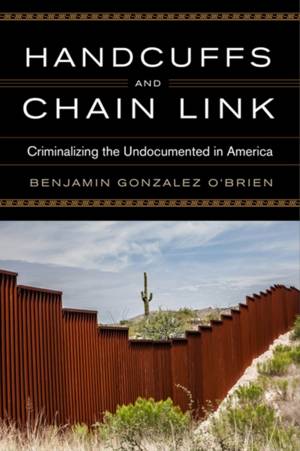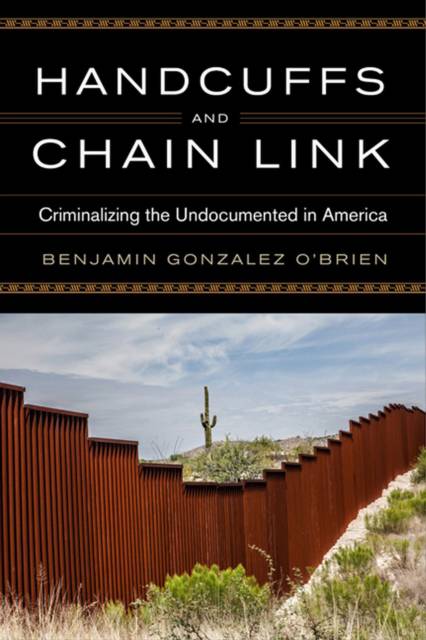
- Retrait gratuit dans votre magasin Club
- 7.000.000 titres dans notre catalogue
- Payer en toute sécurité
- Toujours un magasin près de chez vous
- Retrait gratuit dans votre magasin Club
- 7.000.0000 titres dans notre catalogue
- Payer en toute sécurité
- Toujours un magasin près de chez vous
Description
Handcuffs and Chain Link enters the immigration debate by addressing one of its most controversial aspects: the criminalization both of extralegal immigration to the United States and of immigrants themselves in popular and political discourse. Looking at the factors that led up to criminalization, Benjamin Gonzalez O'Brien points to the alternative approach of the Immigration Reform and Control Act of 1986 and how its ultimate demise served to negatively reinforce the fictitious association of extralegal immigrants with criminality.
Crucial to Gonzalez O'Brien's account thus is the concept of the critical policy failure--a piece of legislation that attempts a radically different approach to a major issue but has shortcomings that ultimately further entrench the approach it was designed to supplant. The IRCA was just such a piece of legislation. It highlighted the contributions of the undocumented and offered amnesty to some while attempting to stem the flow of extralegal immigration by holding employers accountable for hiring the undocumented. The failure of this effort at decriminalization prompted a return to criminalization with a vengeance, leading to the stalemate on immigration policy that persists to this day.
Spécifications
Parties prenantes
- Auteur(s) :
- Editeur:
Contenu
- Nombre de pages :
- 192
- Langue:
- Anglais
- Collection :
Caractéristiques
- EAN:
- 9780813941325
- Date de parution :
- 25-07-18
- Format:
- Livre relié
- Format numérique:
- Genaaid
- Dimensions :
- 165 mm x 224 mm
- Poids :
- 362 g

Les avis
Nous publions uniquement les avis qui respectent les conditions requises. Consultez nos conditions pour les avis.






